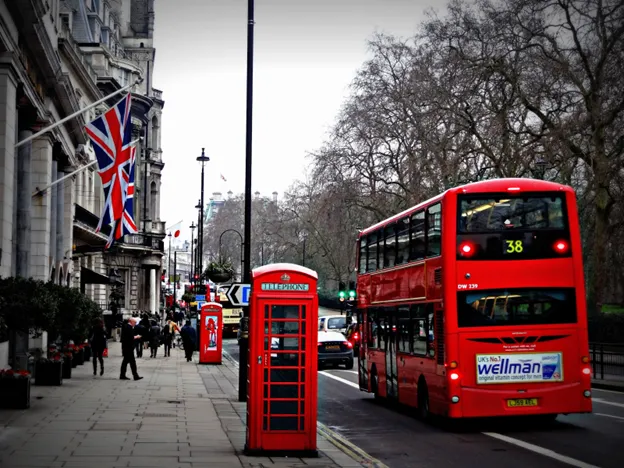How to Maintain PR Status in Canada
You must meet the Immigration, Refugees and Citizenship Canada (IRCC) residency requirements to maintain your Permanent Resident (PR) status in Canada. Some days outside Canada may count towards the days required to keep your PR status.
Speak to one of our immigration lawyers at IAS for more information about how to maintain Canadian PR outside Canada. Call us today at +1 844 290 6312 or complete our online enquiry form for immediate support.
Read our 1001 reviews
Residency Requirements to Maintain Canadian Permanent Resident Status
To maintain permanent resident status in Canada, you must have been there physically for at least 730 days (2 years) within the last 5 years. This implies that you can stay outside Canada for up to 3 years within the same 5 years.
If you’re a Canadian resident living in a border city, employed by a US employer, and making day trips, the days you spend working for your employer in the US also count as full days of residency as long as you return to Canada within 24 hours. As a permanent resident in Canada, you can leave and enter the country at any time using your valid PR card. The portion of a day you spend in Canada can count towards the needed 730 days in maintaining your permanent residency status.
If your Permanent Resident (PR) card expires, you won’t automatically lose your permanent resident status in Canada. If your permanent resident card expires when you’re abroad, you can apply for a Permanent Resident Travel Document (PRTD) to be allowed to re-enter the country. If you have been a PR holder in Canada for less than 5 years and intend to leave the country for a long period, you must demonstrate to the Canadian immigration officials that you can fulfill the 730-day residency requirement.
Examples of Acceptable Proof of Residency
PR holders can prove they meet their residency requirements by submitting the following:
- Employment records, including contracts, pay stubs, and T4 slips from a Canadian employer.
- Bank statements showing transactions within Canada.
- Travel history providing entry and exit records, passport stamps, plane tickets, hotel bookings, etc.
- Utility bills, property ownership documents, or lease agreements in Canada.
- Healthcare records showing the use of Canadian medical services.
Time That Does Not Count Towards Residency Requirements
Not all the time individuals spend in Canada counts towards residency requirements. The time that does not count towards any residency requirements in Canada includes the following:
- Time spent in prison, on parole, or on probation due to a criminal conviction.
- Time spent in Canada after your visa expired or being in the country illegally.
- The time you’ve been in Canada from the date of your refugee claim until you receive a positive decision confirming your protected status.
- The time you’ve been in Canada from the date of your refugee claim until you receive a positive decision confirming your protected status.
How to Document and Track Non-Eligible Residency Days
Tracking the days that don’t count towards residency requirements ensures you comply with residency obligations. To document and track days that do not count towards residency requirements, you must:
- Keep copies of passport stamps and airline tickets for verification.
- Use Canada Border Services Agency (CBSA) travel history records to cross-check time spent in Canada. This helps you keep records of your trips outside of Canada, including the dates you left and returned.
- Use the Immigration, Refugees, and Citizenship Canada (IRCC) travel calculator to estimate your residency obligation.
Failing to Meet the Residency Requirements
You can face the following consequences if you do not meet the residency requirement. You may:
- Receive a removal order, initiating the process for your removal from Canada, if you’re already in the country.
- Be inadmissible to Canada, meaning that you may be denied entry to Canada.
- Lose your PR status after a review by Immigration, Refugees, and Citizenship Canada (IRCC).
- Face challenges to renew your PR card, which is essential for re-entering Canada after travelling.
Process of Losing PR Status Due to Not Meeting Residency Obligations
If you do not meet your residency obligations, you can lose your PR status in the following ways:
- Residency assessment: Immigration, Refugees and Citizenship Canada (IRCC) typically discovers your non-compliance with residency obligations during your application for a PR card renewal or at the port of entry when entering Canada.
- Determination and decision: If the IRCC discovers that you didn’t meet your residency obligation, they may issue a decision stating that you have lost your PR status.
- Removal order: If you’re in Canada and don’t meet residency requirements, you may receive a removal order, asking you to leave the country.
- Loss of PR status (outside Canada): If you’re outside Canada and applied for a Permanent Resident Travel Document (PRTD) to re-enter, IRCC can assess your residency status before granting or refusing the document. IRCC can determine that you have lost your PR status if you don’t meet the residency requirements.
Potential Appeals or Remedies for Not Meeting the Residency Requirements
If you don’t meet your residency obligation as a Permanent Resident (PR), the IRCC may consider you inadmissible and revoke your PR status. You can do the following to restore your PR status after failing to meet your residency requirements:
File an Appeal
You can appeal the decision to revoke your PR status to the Immigration Appeal Division (IAD) office that serves the territory or province where you live in Canada. If this decision also affects your family members, they must file their forms individually.
The appeal must be filed in English or French within 60 days of your PR revocation. To win your appeal, you must provide sufficient supporting evidence detailing why your PR status should be restored.
You must:
- Demonstrate that you had an allowable reason for staying outside Canada
- Demonstrate that there are humanitarian and compassionate grounds for your appeal, such as:
- Severe illness preventing travel
- Exceptional circumstances beyond your control
- Family emergencies requiring extended stays abroad
File for a Judicial Review
If IAD denies your appeal, you can seek a judicial review at the Federal Court of Canada. In the judicial review, the Federal Court judge reviews the reasonableness, fairness, and legality of the IAD decision. This can allow the court to set aside, reconsider, or modify the IAD decision.
Apply for PRTD
If you lost your PR status due to not meeting residency requirements while abroad, you can apply for a Permanent Resident Travel Document (PRTD). While applying for the PRTD, you must provide a comprehensive reason why you couldn’t meet the residency requirements. If the IRCC approves your PRTD application, you may re-enter Canada.
Importance of Understanding and Complying with Residency Obligations
Understanding and complying with residency obligations as a PR holder in Canada helps individuals to:
- Enjoy the benefits of PR status, such as:
- Access most social benefits
- Pathway to Canadian citizenship
- Live, work, and study
- Remain in Canada regularly
- Renew PR cards
- Maintain ties to the Canadian communities
Do The 730 Days Need To Be Continuous?
The 730 days need not be continuous. You only need to have been physically present in Canada for 730 days within the last 5 years. This flexibility allows individuals to travel outside Canada as long as they meet the required days.
Exceptions To The 730-Day Rule
As a permanent resident status holder, you may be exempt from the 730-day residency requirement in specific situations, such as:
- Being sent to work full-time in the office of a Canadian business overseas (with a head office in Canada), with the expectation of returning to resume work in Canada.
- Residing outside Canada with a parent, common-law partner, or spouse who is a Canadian citizen.
- Accompanying a spouse or partner who is a permanent resident holder and assigned to work full-time in a Canadian office abroad, with the expectation of returning to resume work in Canada.
Criteria and Conditions for Qualifying for an Exception
You must meet the following eligibility requirements and conditions to qualify for the 730-day exception:
- For employment-based exception:
- The employer must demonstrate that the job requires the permanent resident to remain abroad.
- The permanent resident must be employed by a Canadian government or business and be assigned to work full-time outside Canada.
- For family accompaniment exceptions:
- The Canadian spouse or common-law partner must be a citizen, not just a permanent resident.
- If a permanent resident accompanies a permanent resident spouse, common-law partner, or parent (for a child permanent resident under 22 years and unmarried), that spouse, common-law partner, or parent must work full-time for a Canadian company or government.
Outcomes of Being Granted an Exception
If you have been granted the 730-day rule exception, the following outcomes can apply:
- Your Canadian PR status remains valid.
- Your residency obligation may be adjusted after the IRCC considers your situation.
- You may need to provide additional documents when renewing your PR card to prove why you didn’t meet the residency requirement.
How Can IAS Help?
At IAS, our immigration lawyers can assist permanent residents in Canada to assess their eligibility for residency obligation exceptions. Our immigration lawyers can prepare comprehensive documentation to support your reasons for not meeting the residency requirements.
If your Permanent Resident (PR) status is at risk, we can help you file a comprehensive appeal with the Immigration Appeal Division (IAD) or seek a judicial review. We can provide you with legal representation in residency determination cases. For more information about how you can maintain your Canada PR, our immigration lawyers at IAS can help. Call us today at +1 844 290 6312 or message us online for immediate support.
Table of Contents
Table of Contents will appear here.Legal Disclaimer
The information provided is for general informational purposes only and does not constitute legal advice. While we make every effort to ensure accuracy, the law may change, and the information may not reflect the most current legal developments. No warranty is given regarding the accuracy or completeness of the information, and we do not accept liability in such cases. We recommend consulting with a qualified lawyer at Immigration Advice Service before making any decisions based on the content provided.
Services we Provide
Frequently Asked Questions
As a permanent resident, you can stay outside Canada for more than 6 months, but you must be physically present in Canada for at least 730 days within 5 years.
After getting Canada PR, you can spend up to 3 years abroad as long as you meet your 2-year residency requirement by being physically present in Canada for 730 days within the same 5 years.
If your PR card is still valid, you can stay out of Canada for more than 6 months without complications. Then, you can freely return by land, sea or air.














